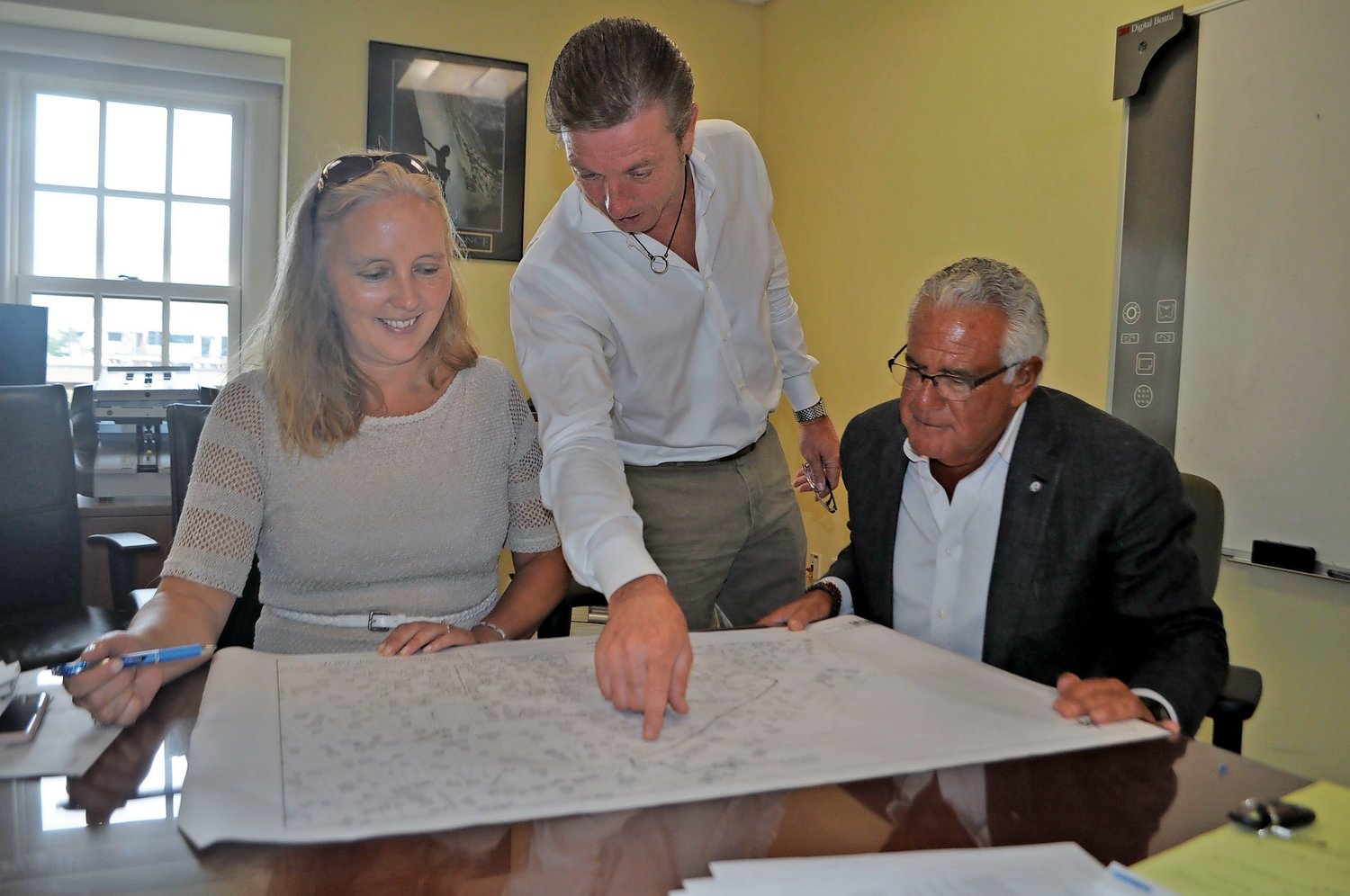Second stage of Sea Cliff sewer project gets the go-ahead
The Nassau County Legislature voted unanimously on Oct. 26 to expand the scope of work for the ongoing process of sewering the Village of Sea Cliff. After a decade of planning, the project began in May, connecting the Sea Cliff Avenue sewer line to streets in downtown Sea Cliff. The funding for the second stage will come from money left over from the first stage.
The additional 2,460 linear feet of sewers will service properties on portions of Maple, Central, 7th and Summit avenues. Sea Cliff Village officials were able to expand the scope of its sewer expansion project at no additional cost thanks to favorable prices that were secured when bidding out the initial 5,850 linear feet of work, which impacted portions of Prospect, 12th and Summit avenues, as well as Fairview Place.
Mayor Edward Lieberman said the village received funding to lay the Sea Cliff Avenue sewer line six years ago, but there wasn’t enough money to connect the line to homes or businesses. That changed in the summer of 2018, when the village received $4 million in bonds from Nassau County and $3 million in state grants.
The first stage of the sewer project has been a success, Lieberman said, and he is excited to see it moving forward.
“It’s a great achievement for the village to have at least this part of Sea Cliff Avenue connection come to fruition as well as all the additional residences that will be able to be hooked up for not only their benefit but for the entire village’s,” he said.
Village Administrator Bruce Kennedy said the first stage of the project cost roughly $5 million, leaving roughly $2 million over for the second stage. He said the village was able to get the first stage under its budget by selecting the best bidding options available. This, he said, enables the project to move forward without any additional cost.
Additionally, Kennedy said the village had a contract with the developers of the Glen Harbor condominiums in Glenwood Landing. The developers paid for a sewer line down Prospect Avenue to Cliff Way, which saw $700,000 in reimbursements coming back to the village.
“The bottom line is that if we’re able to go even further without spending any more money, it’s a home run,” Kennedy said.
While putting the first stage together, Kennedy said the village had to coordinate with water and gas utilities to get things done. The village needs to engineer plans around those companies’ existing infrastructures as the second stage moves forward, he said, so there is no clear timetable as of yet.
Legislator Delia DeRiggi-Whitton, a Democrat from Glen Cove, said the original project encompassed the business district of Sea Cliff, but the hope was always to expand it into more residential areas and eventually the entire village. In the future, she said, the village is hoping to put one or two more streets per year in its capital budget.
Even with the second stage moving forward, DeRiggi-Whitton said 85 percent of the village is still unsewered, despite the fact that 90 percent of Nassau County is serviced by sewers.
Sea Cliff’s waste has been handled by cesspools since the turn of the 20th century, and some working cesspools are over 50 years old, which DeRiggi-Whitton said can be bad for businesses and homeowners. She said they can limit the legal human occupancy of restaurants, forcing them to allow less customers inside than a sewered business would. Cesspools can also be difficult to maintain, she said, so sewering the village will give homeowners one less thing to worry about.
Sewers are also far better for the environment, DeRiggi-Whitton said, as they are much less prone to leaking out wastewater than cesspools are. This is especially important for a waterfront community like Sea Cliff, she said, as preserving the health of Hempstead Harbor is important for everyone in the area.
“Sea Cliff’s steadfast commitment to their sewer expansion initiative will allow more property owners to benefit from a project that protects the environment, stimulates economic growth and enhances our quality of life,” DeRiggi-Whitton said.
Kennedy said he has been pushing to connect village properties with sewers as far back as 2009, when he was mayor. This, he said, makes the advancement of the second stage even more meaningful.
“It’s extremely gratifying,” Kennedy said. “It proves to me that hard work and dedication to a project can make it a reality.”

 44.0°,
Mostly Cloudy
44.0°,
Mostly Cloudy 




